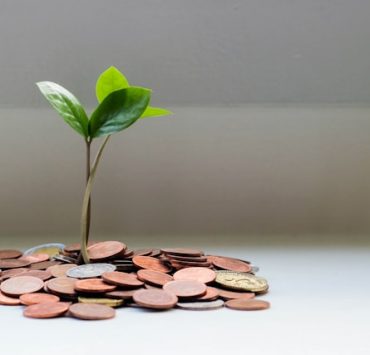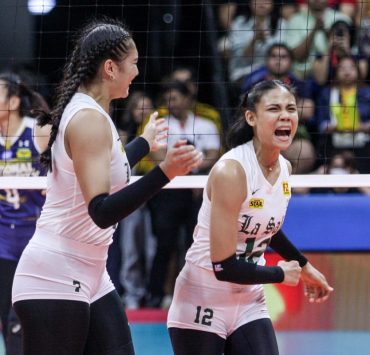BookTok, Bookstagram: The good and the bad

Filipinos have always been lovers of literature. Even Andres Bonifacio led a life of reading, having no formal education and relying on books as his way to self-learn.
According to the 2017 Readership Survey of the National Book Development Board (NBDB), out of 1,200 participants from around the country, 94 percent of adult respondents, and 96 percent of youth respondents reported that they enjoyed reading.With everyone being stuck at home during the pandemic, the NBDB reported that book sales in the Philippines more than tripled, amounting to P10.27 billion by the end of 2021. During that time, BookTok (Book TikTok) and BookStagram (Book Instagram) accounts also became popular on social media, sparking the growth of a vast, online book community. Book enthusiasts used these platforms in order to connect with other readers to discuss their favorite books, as well as making content to share their reviews and thoughts on the most recent book that they have read.
BookToker Julienne Alcos (@juliennereads on TikTok) said that while she made an account on Instagram back in 2016 for her bookish content, it was on TikTok where she really shone.
“I’ve been making bookish content since 2016 but I was never really consistent because other parts of life kept me busy. During the pandemic, in 2020, there was a BookTok surge, maybe because we were all looking looking for an escape.” She made her own BookTok account in 2021, after she completed her board exams. “I shine more when I speak,” she said.
Book influencers
BookStagrammer and Fully Booked reading ally Shai San Jose (@artofshai, @ofpaintsandpages on Instagram) said that she created a separate account for her book content because she got inspired by the other book influencers who appeared on her Instagram feed. That was back in 2016.
“I joined Book Club Philippines on Facebook when I was in college which was around the same year I created my BookStagram account,” San Jose said. “It was nice to meet people who had the same passion, participating in book challenges, chatting about the latest book chika and trying to finish our book of the month so I could join the discussion. It feels like I’m finally with my people.”
While BookTok and BookStagram serve as a massive “book club” for book lovers both locally and worldwide, as with anything that involves the internet and social media, there are several advantages and disadvantages to the emergence of these “bookish content” trends.
“The pros are the opportunities for both authors and readers. New books get discovered by word of mouth, it’s like a domino effect: readers get a new favorite, and authors get their audience,” said San Jose.
Aside from helping book lovers find new recommendations, BookTok and BookStagram are both good platforms that can help lesser-known, or up-and-coming writers to gain more popularity and exposure. These platforms give authors a place to advertise their books by posting content about it and also help them connect with publishers, agents and other creatives who would be able to assist them in their projects.
Being part of the online book community also allowed San Jose to gain opportunities as an artist and an illustrator. “I discovered the RomanceClass community which consists of Filipino authors and readers who love romance. They opened the doors for me to create their cover illustrations and I’m forever grateful.”
Alcos added that the online book community is one of the reasons that she is encouraged to read. “I feel like it’s the reason I’ve been reading continuously, unlike before where there would be gaps. The community makes me want to read because it’s fun to have people to talk to about the books you’re enjoying. People would say, ‘I like that too!’ It’s fun. The community really gives you a venue to discover more books, so just read and read.”
Cons
San Jose said that some people tend to use these platforms negatively. “The cons would be people abusing the opportunity and using the platform to sabotage others for their own gain.”
One instance is the case of Cait Corraine, a first-time author who created multiple fake profiles on Goodreads, a popular book review website, to “review bomb” other emerging authors’ books with one-star ratings while leaving five-star reviews for her own soon-to-be-published book. After being exposed by other authors online, Corraine ultimately confessed, which led to her losing her book deal.
Some social media users throw hateful comments at BookTokers or BookStagrammers or even start feuds with other members of the community who express negative opinions on books they love because, as it always has been on the internet, it’s easier to say anything that you want when you’re hidden behind the screen.
Alcos said that she was initially scared to make a BookTok account for that very reason. “That was one of my fears when I created my account. Because the people on TikTok, just because you couldn’t see who they are and they’re hidden behind a username, they feel like they have the right to say all sorts of things.”
Checking the hashtag #BookTok or #BookIG alone will show you that most of the popular books are written by American or European authors and published by major publishers.
Alcos said that this might have something to do with the algorithm. “It usually shows you books that are trending. I think that’s the reason there are criticisms that there’s a lack of diversity in BookTok.”Filipino authors
San Jose said, “There are a few influencers who post about books written by Filipino authors, but are they enough? I don’t think so, not yet. I don’t see enough readers talking about books written by Filipino authors, especially ones published locally, but it’s kind of refreshing to see that it’s somehow starting to grow. I’ve been seeing new Filipino authors on the scene, and I’m quite excited for what’s to come.”
Alcos said she has seen a lot of improvement when it comes to the popularity of Filipino-written and locally published books. “I think there’s been a big improvement and it’s nice that we have local authors who are published by big publishing houses like Penguin Random House … I’ve been reading more local books now but I think there should be more. I’m positive there will be more representation in the next few years.”
There are different ways to support Filipino books and authors, she addd. “BookTokers can make videos that focus on local book recommendations because a lot of readers are looking for good local books. The problem is they don’t know where to find them. It would also help if you compare them to popular books, like, ‘If you like this book, you should read this local book.’”
Bookstores in the Philippines such as National Book Store and Fully Booked have started to install designated areas in their branches dedicated to trending books on the internet (commonly labeled as BookTok sections), and areas dedicated to Filipino authors and books.
San Jose hopes more people would discover the joys of reading. “Reading takes you on a journey that movies or TV series cannot provide. You get to be the main character of the book: you see everything through their eyes. You’re not watching from a distance but you’re living in their shoes. You get to know what’s going on in their head, their perspective, and how they feel. You get to know more about the character and the world they’re living in. It’s a magical journey that one should experience.”
A good way to start would be to pick up a trending book. “It doesn’t matter if your first book isn’t a classic or the way it’s written is very fanfic. The important thing is you enjoy it, that way you’re going to pick up another. It also helps that there’s already a community that loves that book so you have people to converse with and you’ll get even more encouraged to read,” said San Jose. While BookTok and BookStagram are not without its flaws, these platforms have been successful in promoting reading as a hobby to a vast audience, inviting more people to put down their phones and pick up a book. With Filipinos being avid fans of reading, with more time and with more efforts to promote our writers and literature, more Filipino authors and books should appear on that “trending” page. —CONTRIBUTED by By Niña Rodriguez INQ

















